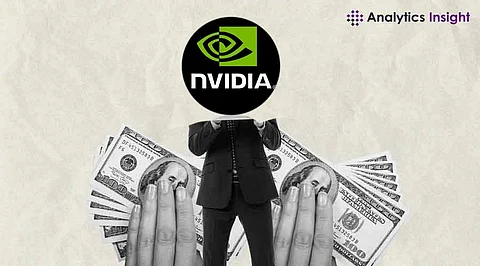

Nvidia’s upcoming earnings report will reveal whether demand for its artificial intelligence chips remains robust as competition intensifies. With China’s DeepSeek launching low-cost AI models, investors are questioning Nvidia’s continued dominance. The stakes are high, especially after DeepSeek’s rise led to a historic $593 billion drop in Nvidia’s market value.
The company has been a major beneficiary of AI-driven investments by tech giants over the last two years. However, DeepSeek’s models claim to rival Western counterparts at a fraction of the cost. This has led investors to question whether Nvidia’s chips remain essential for AI advancements.
DeepSeek’s rise in January caused Nvidia’s market value to drop by $593 billion. It was the largest single-day loss for any U.S. company. Despite this, Nvidia's stock performed well in 2023 and 2024.
Spear Invest’s Chief Investment Officer Ivana Delevska noted investor concerns about DeepSeek’s impact. She stated that if Nvidia continues to exceed expectations, its stock performance may remain strong.
Nvidia is expected to report a 72% revenue increase to $38.05 billion for the fourth quarter, based on LSEG data. This marks its slowest growth in seven quarters. The company is likely to project a 60% revenue increase for the first quarter ending in April. In previous quarters, Nvidia recorded five straight periods of triple-digit revenue growth until October.
Demand for Nvidia’s AI chips remains strong. Key customers including Microsoft and Meta have reaffirmed their commitment to large-scale data center investments. Gabelli Funds portfolio manager John Belton highlighted that capital expenditure plans from Meta, Microsoft, Google and Amazon indicate strong near-term demand for Nvidia.
Shipments of Nvidia’s Blackwell chips likely increased in the fourth quarter, driving revenue growth. However, this expansion also put pressure on profit margins due to the complexity of manufacturing new chips. Analysts expect Nvidia's adjusted gross margin to decline by over three percentage points to 73.5% in the fourth quarter.
Lately, Nvidia has shifted from selling individual chips to full AI computing systems like the GB200 NVL72. These systems bundle GPUs, CPUs, and networking equipment, adding complexity to production. Taiwan’s TSMC, Nvidia’s contract manufacturer, has struggled to expand capacity for advanced packaging, a critical step in AI chip production.
Initial Blackwell production faced design flaws and low chip yields. Nvidia has since resolved these issues. In November the company stated that Blackwell’s revenue would surpass initial projections of several billion dollars in the fourth quarter.
Belton acknowledged the challenges in launching Blackwell. He suggested that Nvidia’s earnings might not show the level of outperformance that investors have come to expect. The launch’s complexity and supply chain constraints could impact near-term delivery.
